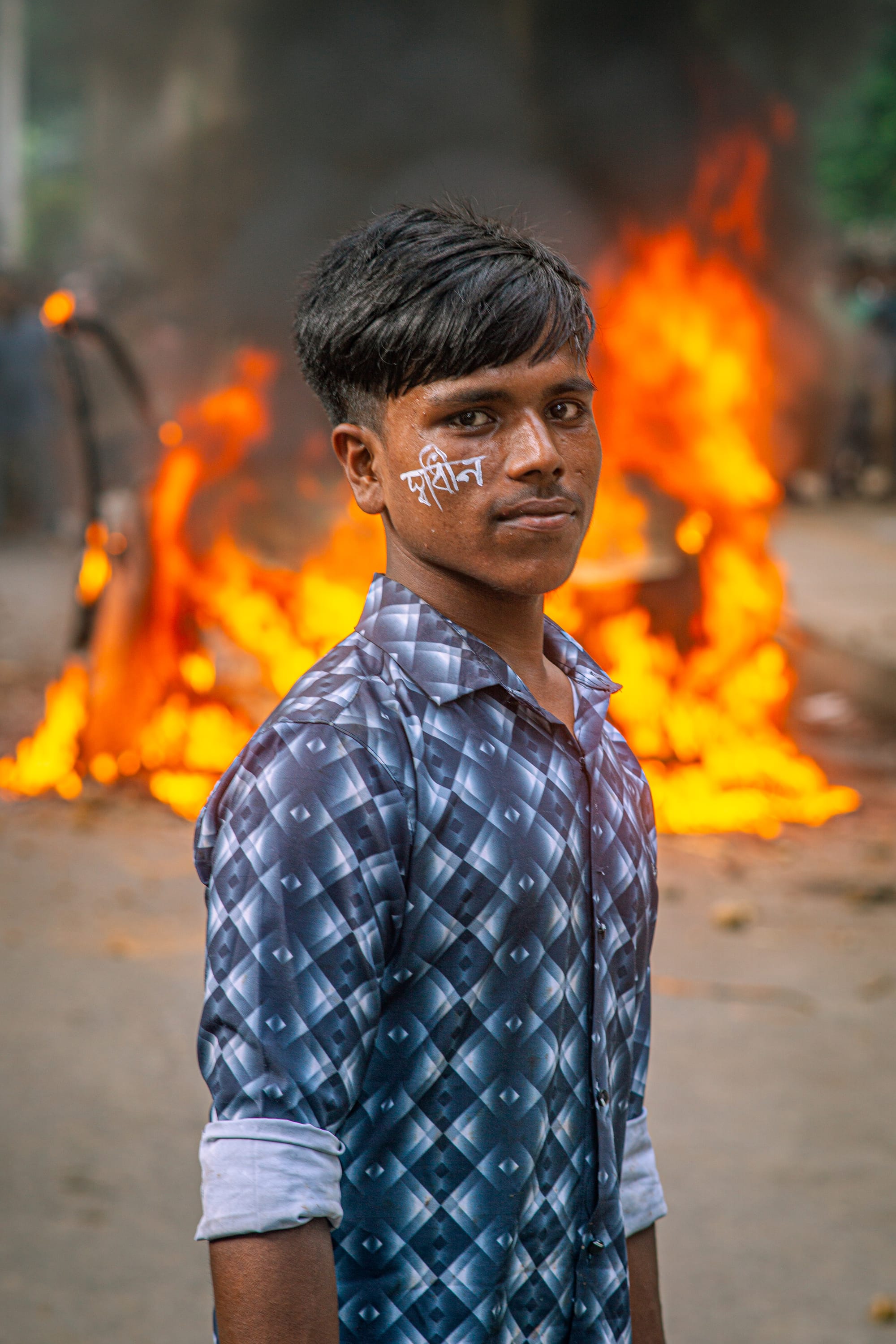Awakening
Considered an ‘apolitical’ group, this cohort of students also risked their lives to stand up to the government in July last year. But after August 5th, private university students have been all but sidelined.
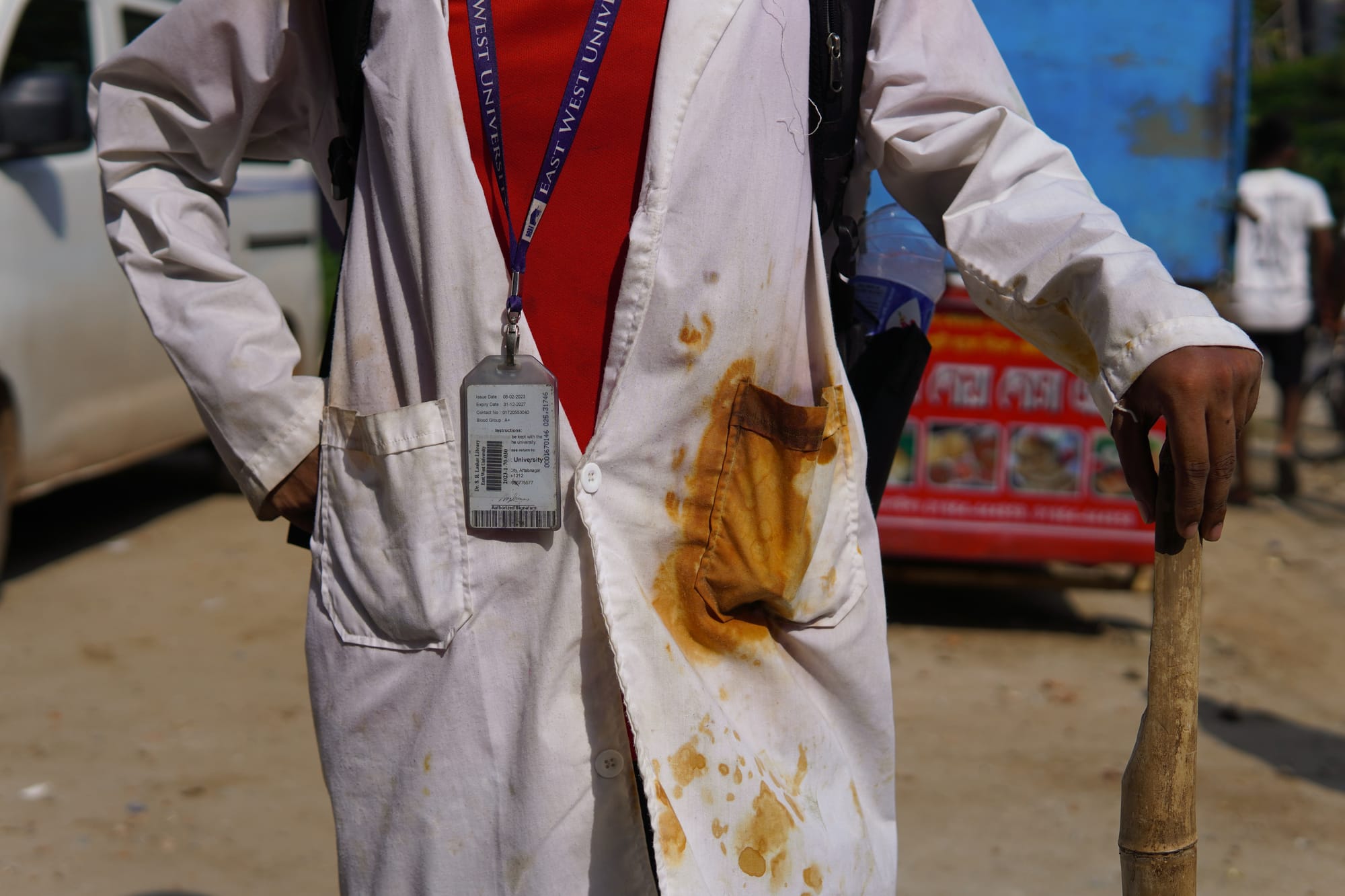
Every month, Mashruk Ahmed will curate an instalment of a photo-story series that questions established power discourse, featuring photographers who explore gaps, absences, and silences in Bangladesh’s socio-political records.
In this fourth edition, we commemorate the one-year anniversary of the July Uprising 2024, focusing on the perspective of private university students. This special edition is a two-part photo series featuring 11 student photographers from three private universities in the capital who documented the mass protests by risking their lives. After months since Hasina’s ousting, many of these students reflect on their part during the student-led uprising, political identity and what lies ahead. You can find the first part of this edition, “Lenses of Defiance”,here.
At first, it was quiet. People assumed private university students were too privileged or scared to protest. But that myth collapsed quickly on July 18th. We went from background characters to a driving force.
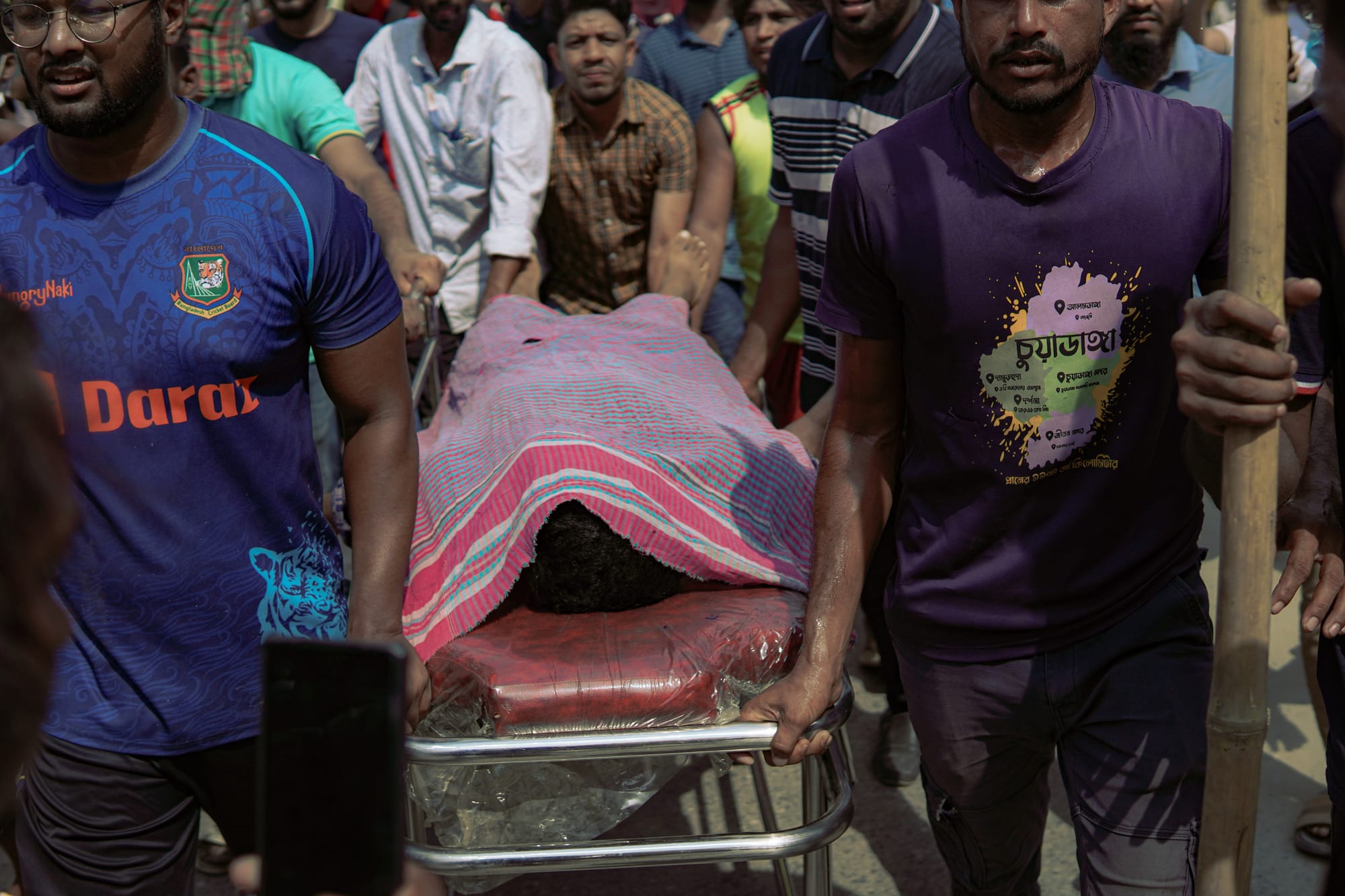
People begged us to delete the photos—out of concern for our safety, for protection. But we couldn’t. Deleting would have meant erasing the truth.
The truth was ugly. We saw students injured, limping, bleeding, carried away. We saw arrests and death—and lives changed in an instant. As photographers, we held the proof. As protesters, we held those memories in our bodies.
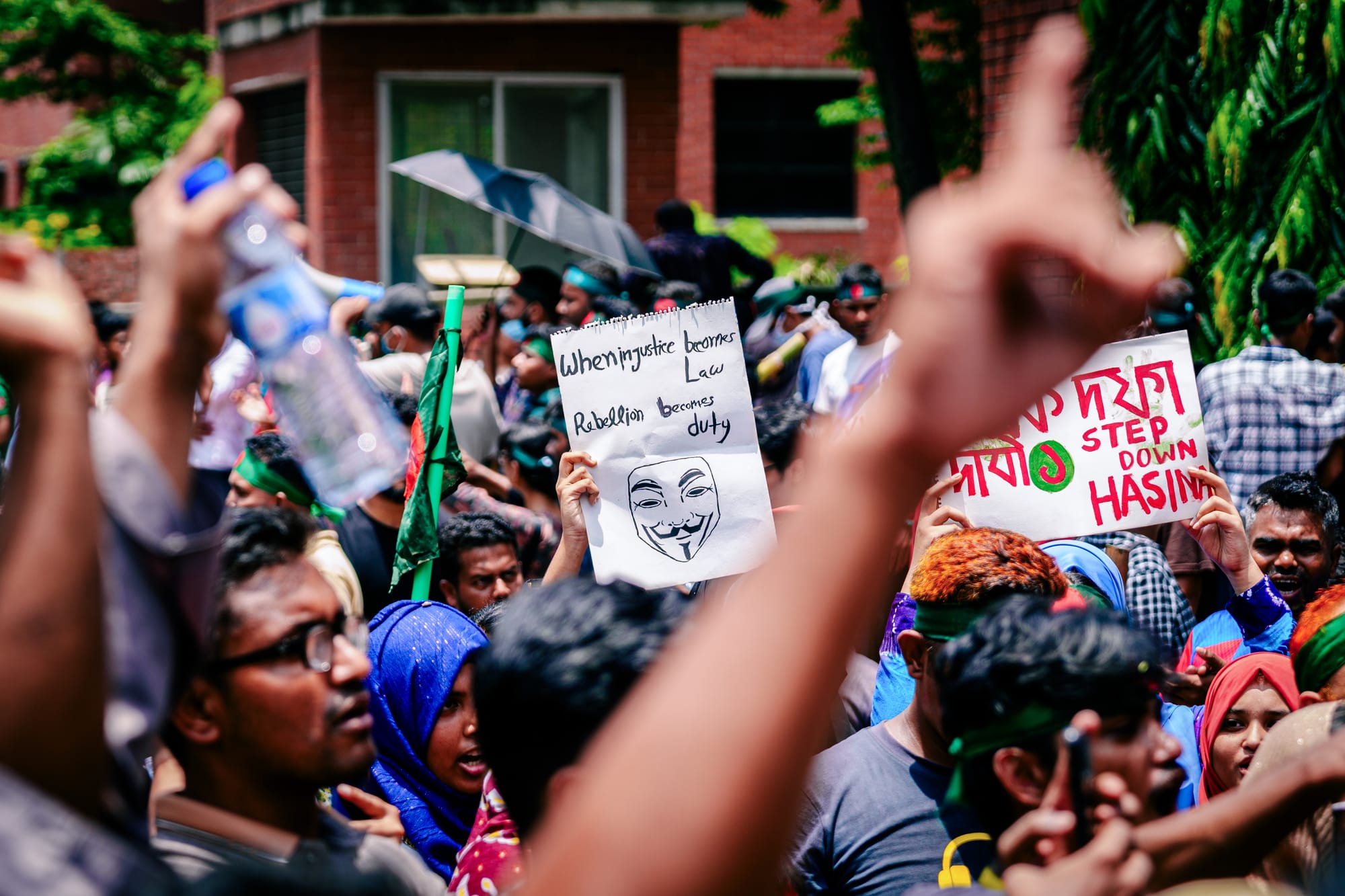
Emotionally, each day, through the three weeks leading up to August 5th, was a mix of exhaustion, fear, and pride. Physically, we were drained, having to move between locations, documenting protests, and witnessing violent clashes. The body felt the toll of injuries from rubber bullets, tear gas exposure and the constant tension—the sounds and the chants of the students still echo in our minds.
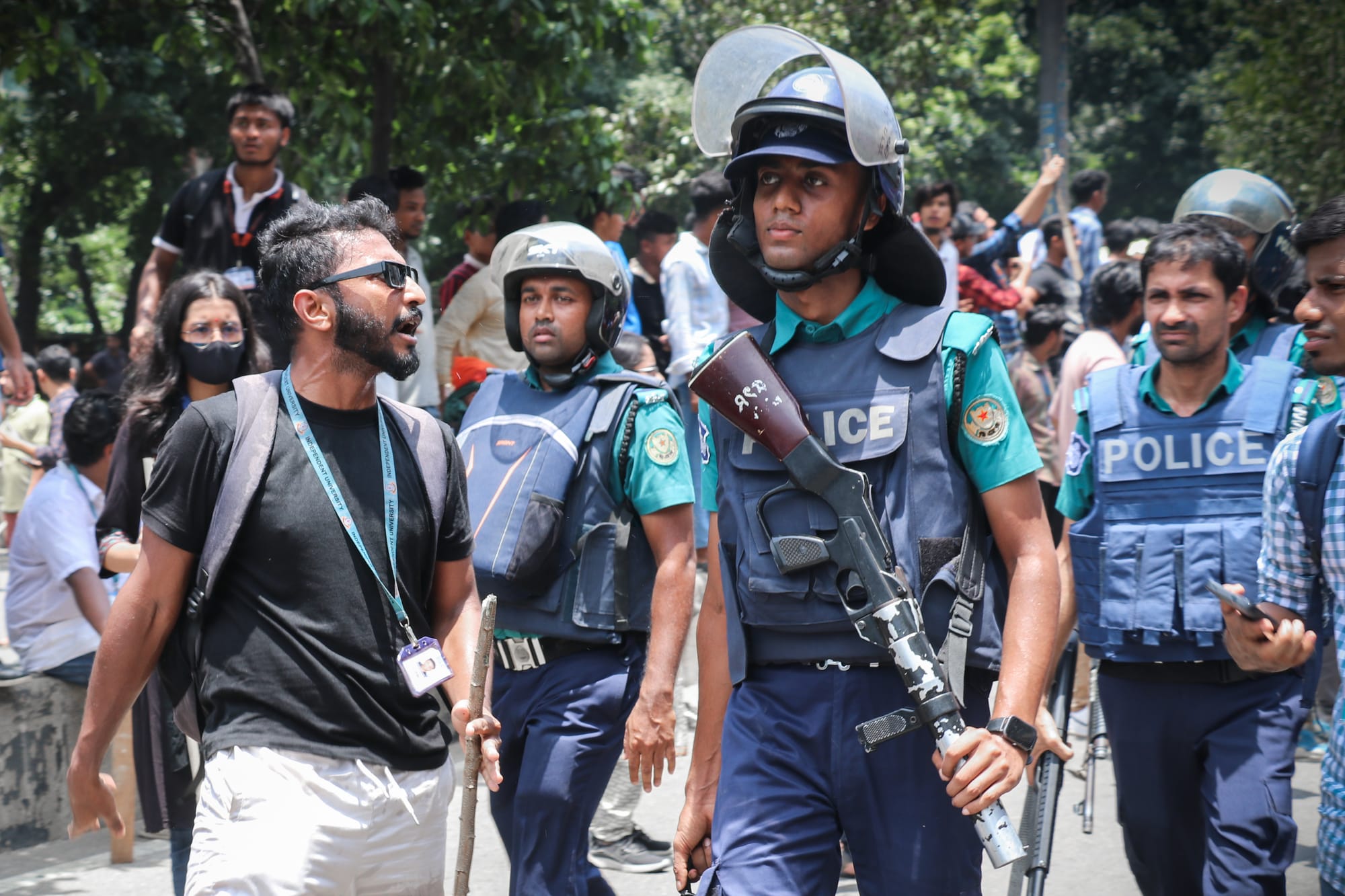
But despite all that, the sense of being part of something bigger kept us going—as if everyone knew the stakes were high but also believed they had a part to play in the larger struggle.
After the protests ended, things changed. Our groups didn’t dissolve, it evolved. Some drifted, naturally. But others? We’re still in touch. We became more than classmates or teammates, we became survivors of something bigger than ourselves—there’s a kind of bond that forms when you’ve faced violence together.

There’s no easy way to carry what we saw. The bruises fade, but the grief, the images, the screams, and the loss linger. There are still nights when we see those faces and forgetting them feels like it would be a betrayal.
Before the July Uprising, we were labelled privileged, detached, even apolitical. Private university students were seen as outsiders to the struggles that shaped our country. But the July uprising shattered that stereotype, and that label didn’t hold up when bullets rained and we stood shoulder to shoulder with public university students.
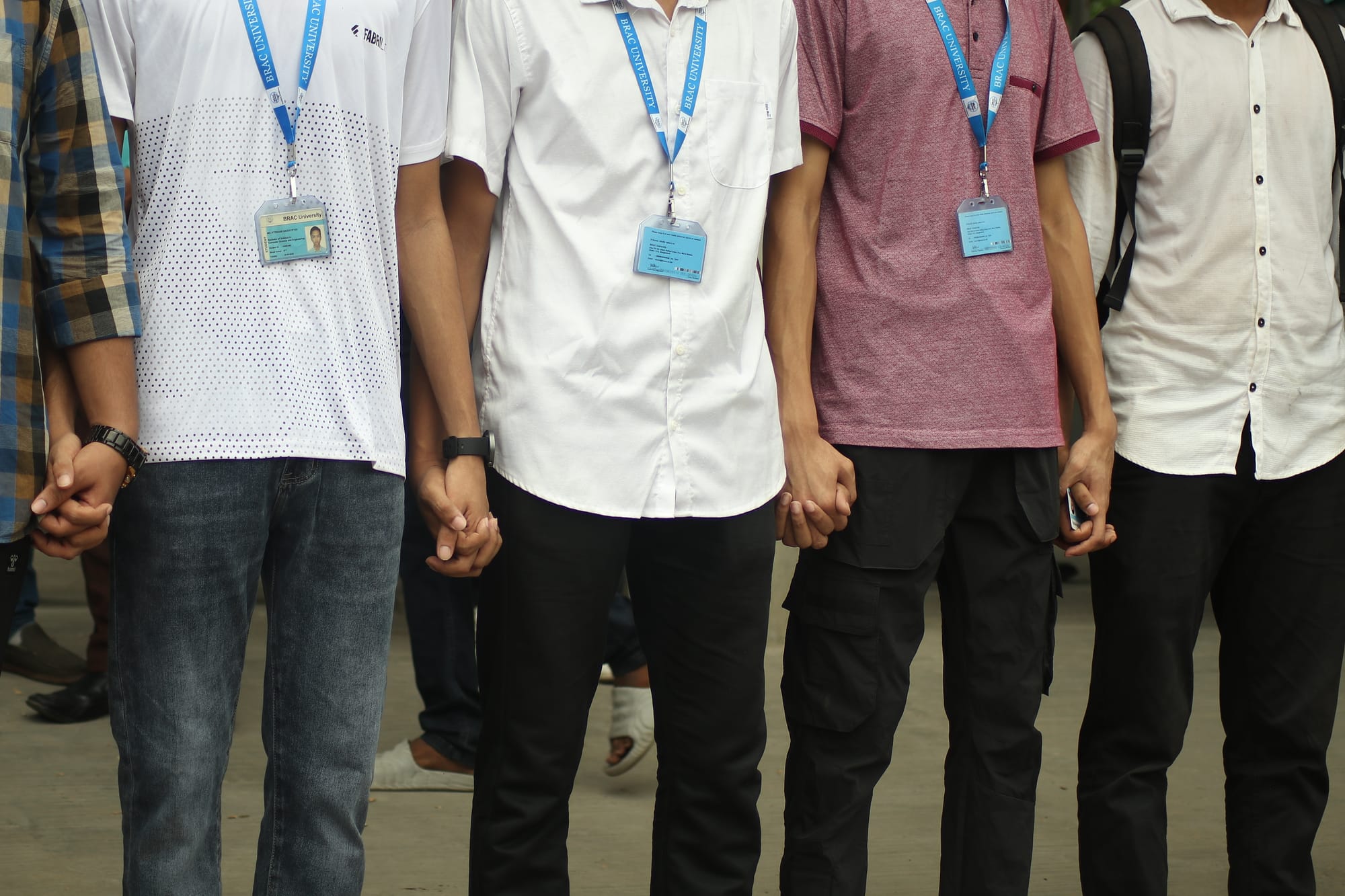
We didn’t just speak, we marched, we bled, we documented. That stereotype crumbled because we proved that when justice calls, we answer.
Leadership wasn’t about being loud. It was about showing up, about pulling someone to safety, handing out saline, shielding someone with your body. Solidarity wasn’t a word anymore it was a breath, a body movement. Courage was choosing to stay when running felt safer.
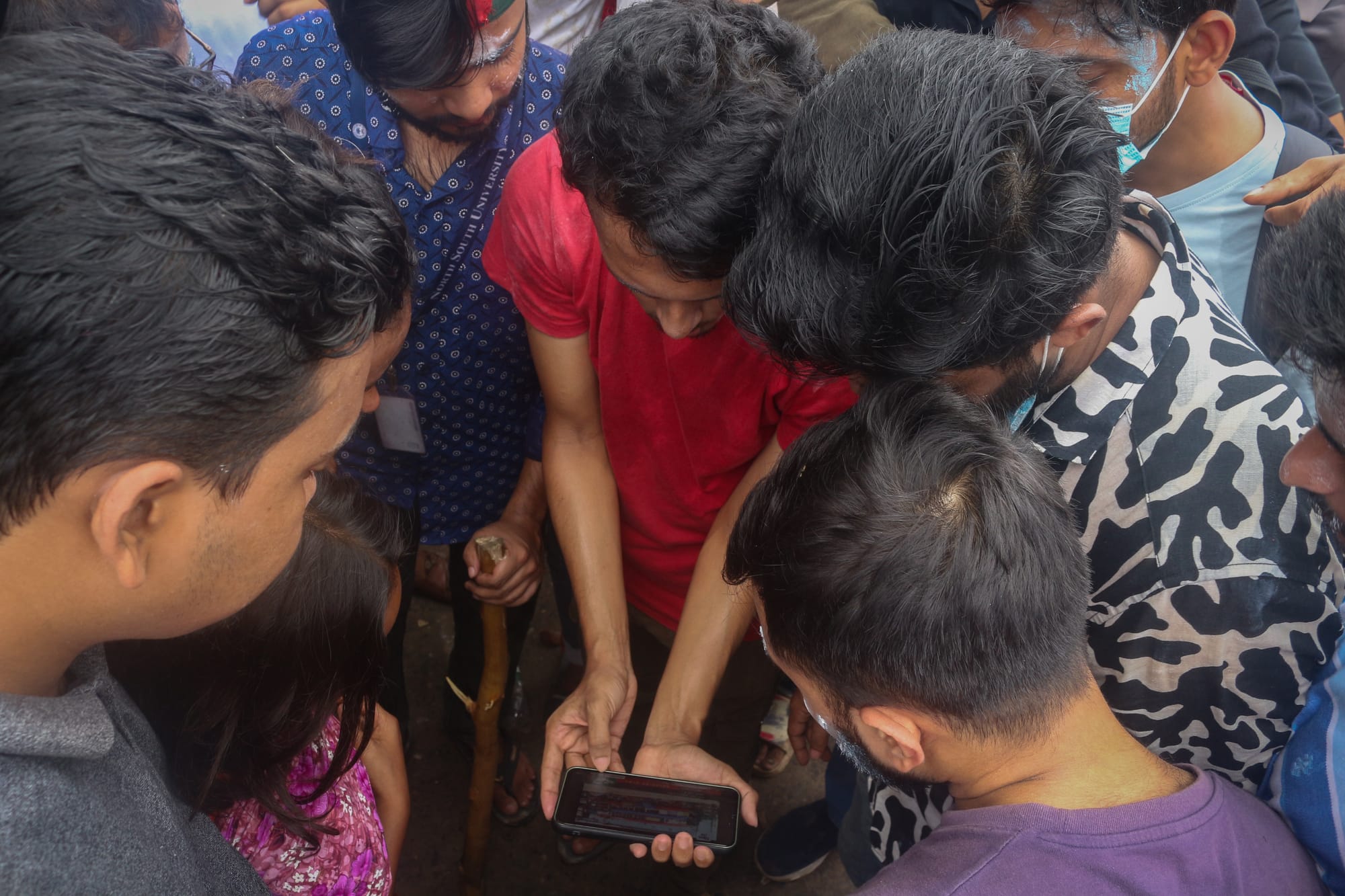
And resistance, as photographers, is refusing to crop out the pain, refusing to look away. Resistance is documentation, memory, choosing voice over silence.
Being from a private university definitely shaped how people saw us. At first, there was skepticism, maybe even resentment. But over time, something shifted. Public university students started seeing us not as privileged kids parachuting in, but as co-strugglers, allies. The media began to notice our role too, especially on July 18th.
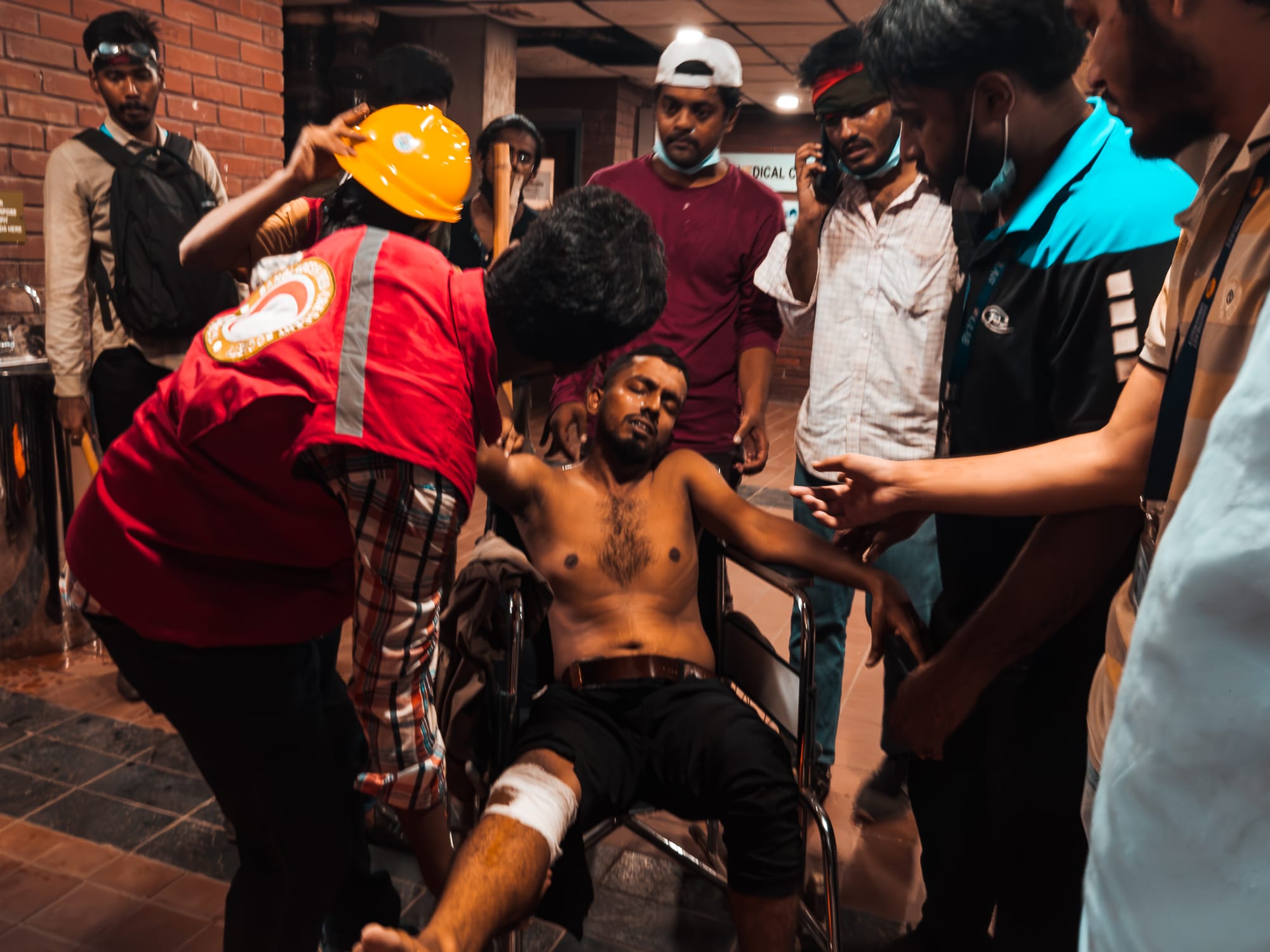
Were we underestimated? Absolutely. But that underestimation made our contribution even more powerful and made our impact hit harder. We were the ones no one expected to fight. We showed that unity can cross campus walls, social divides, even expectations. That’s why we’ll always matter in this story.
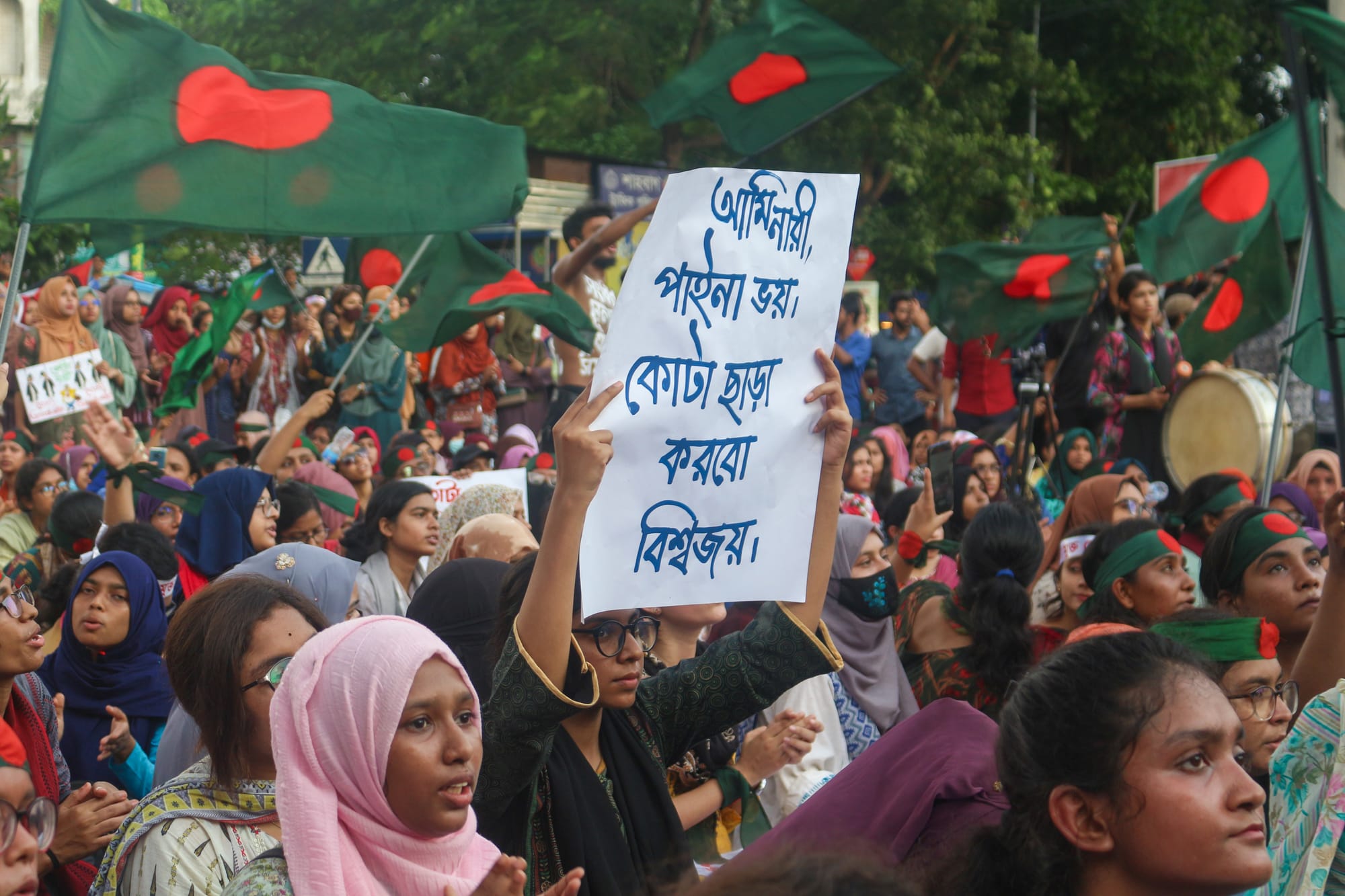
We didn’t just impact the movement—we changed how society saw us. Being a private university student stopped meaning “privileged” and started meaning "resilient." Even after August 5th, we have contributed at every possible avenue including handling traffic, cleaning up the streets, painting wall arts.
One of the reasons why our involvement in the protests was so meaningful is because, up until the July uprising, we did not feel compelled enough to vote in a national election. Taking part in the uprising felt like the only way to have our voices heard.

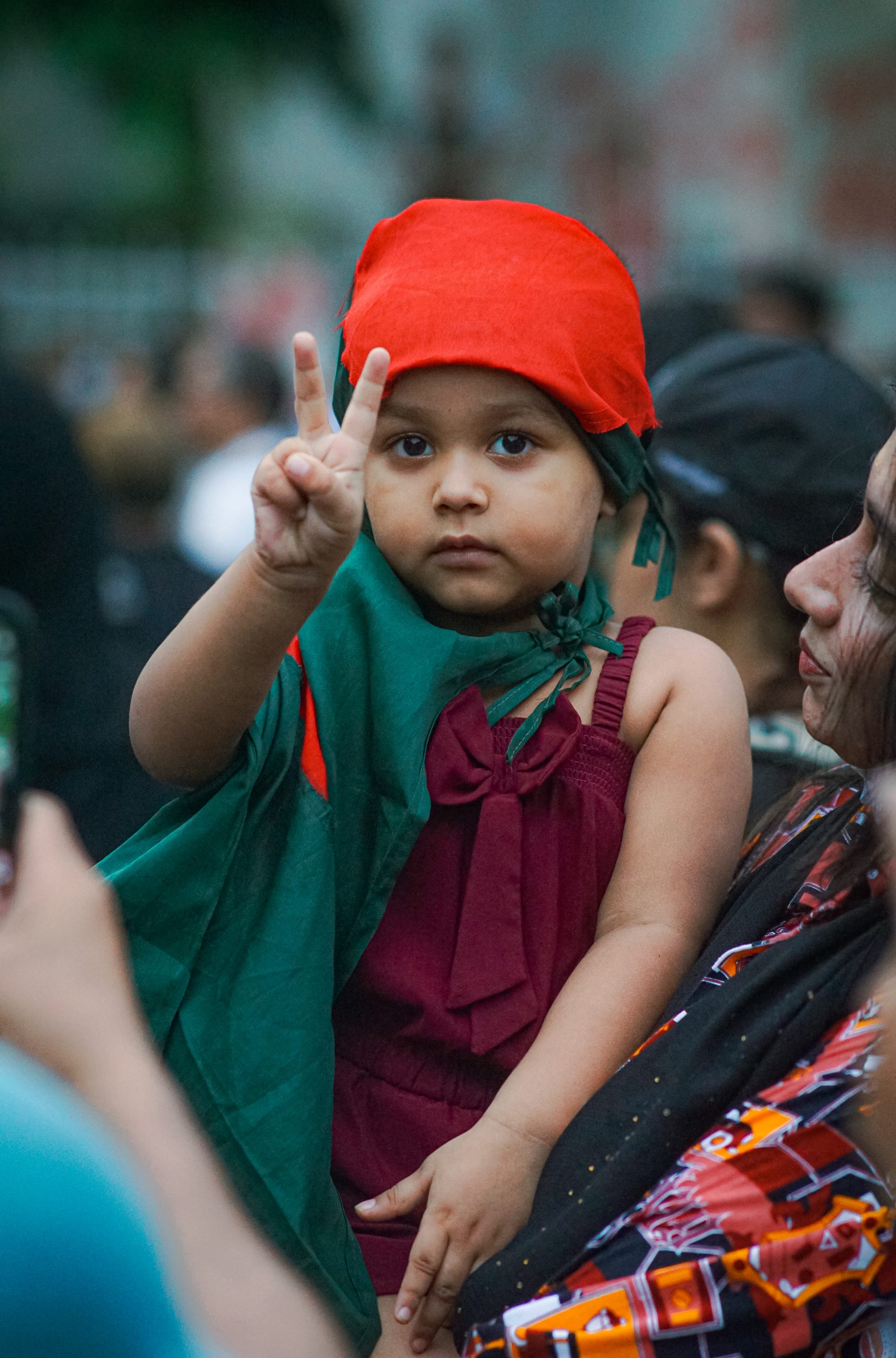
Photographs: Mahdin Shafiq Omi (left) and MD Asiful Islam (right)
We don’t believe our generation feels politically represented. The system seems out of touch with the realities and needs of young people. The protests were a clear sign that many of us feel unheard and underrepresented by those in power.
Justice would mean accountability for the violence that took place during the protests, and a transparent, fair system that truly represents the will of the people. Systemic change would involve addressing the flaws in governance, ensuring fair representation, and protecting the rights of all citizens, not just the powerful.
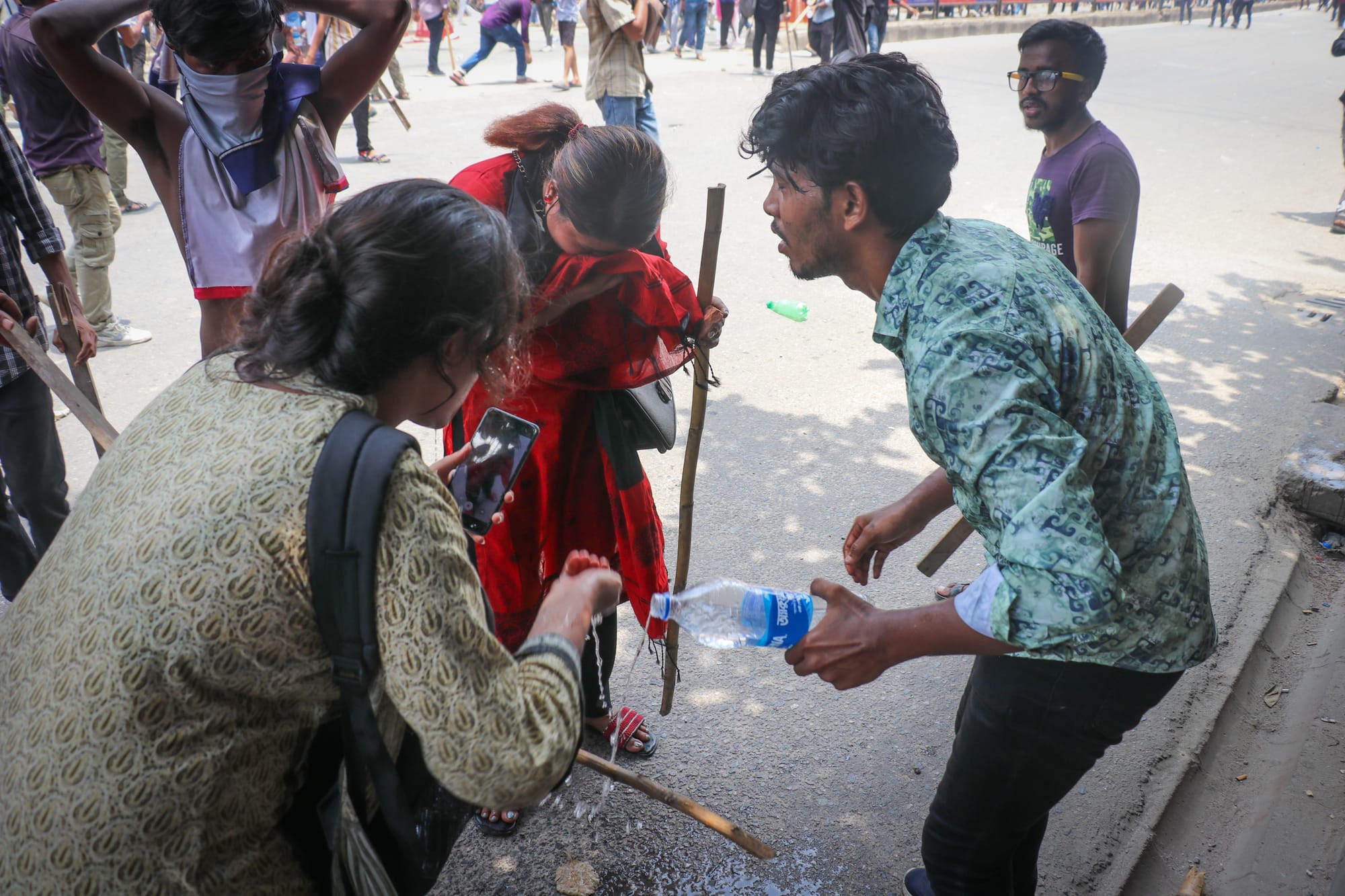
Our goal was to eradicate discrimination. If we can work on that by remembering our martyrs, we can perfectly represent our July uprising to our future generations.
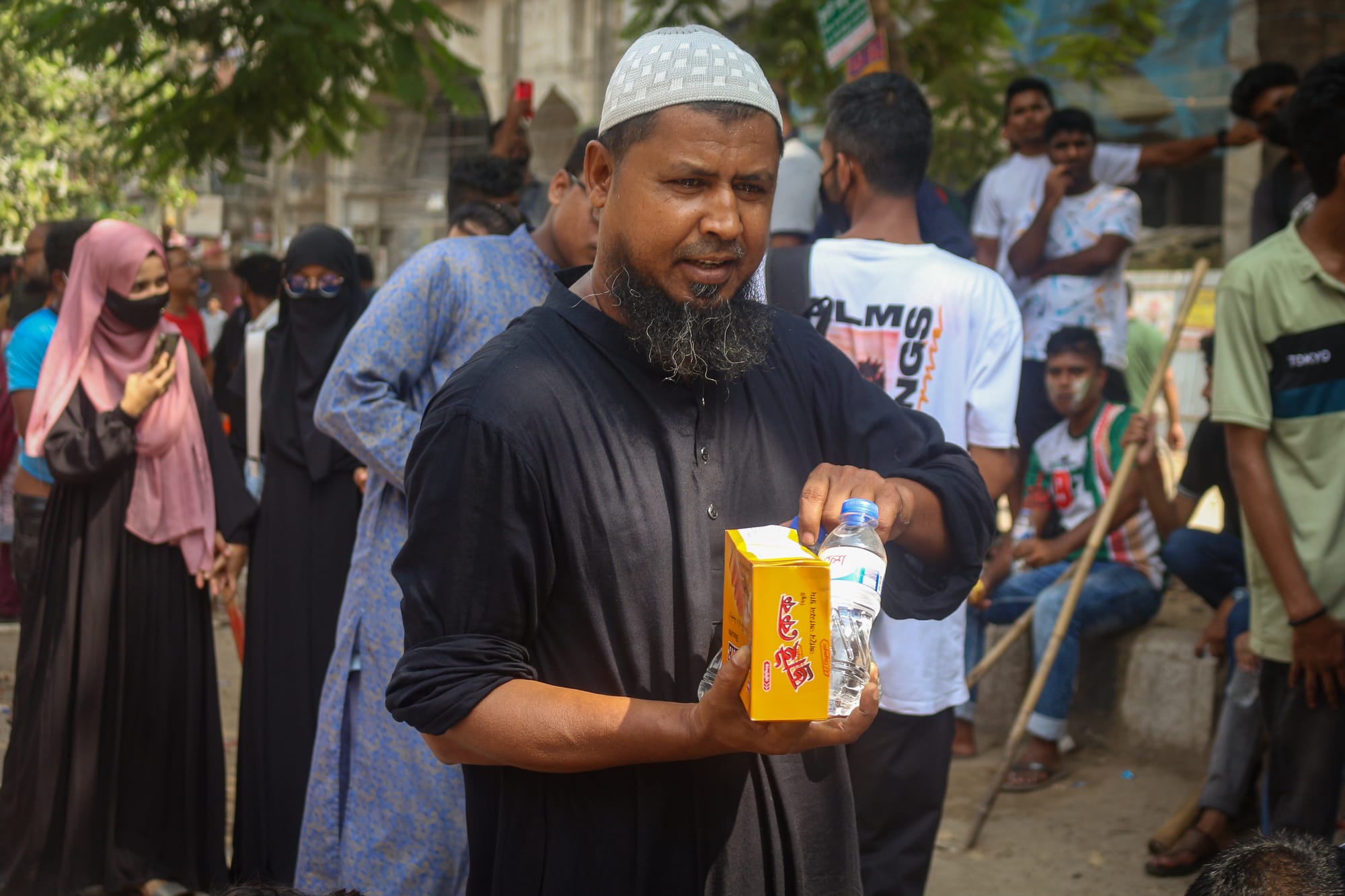
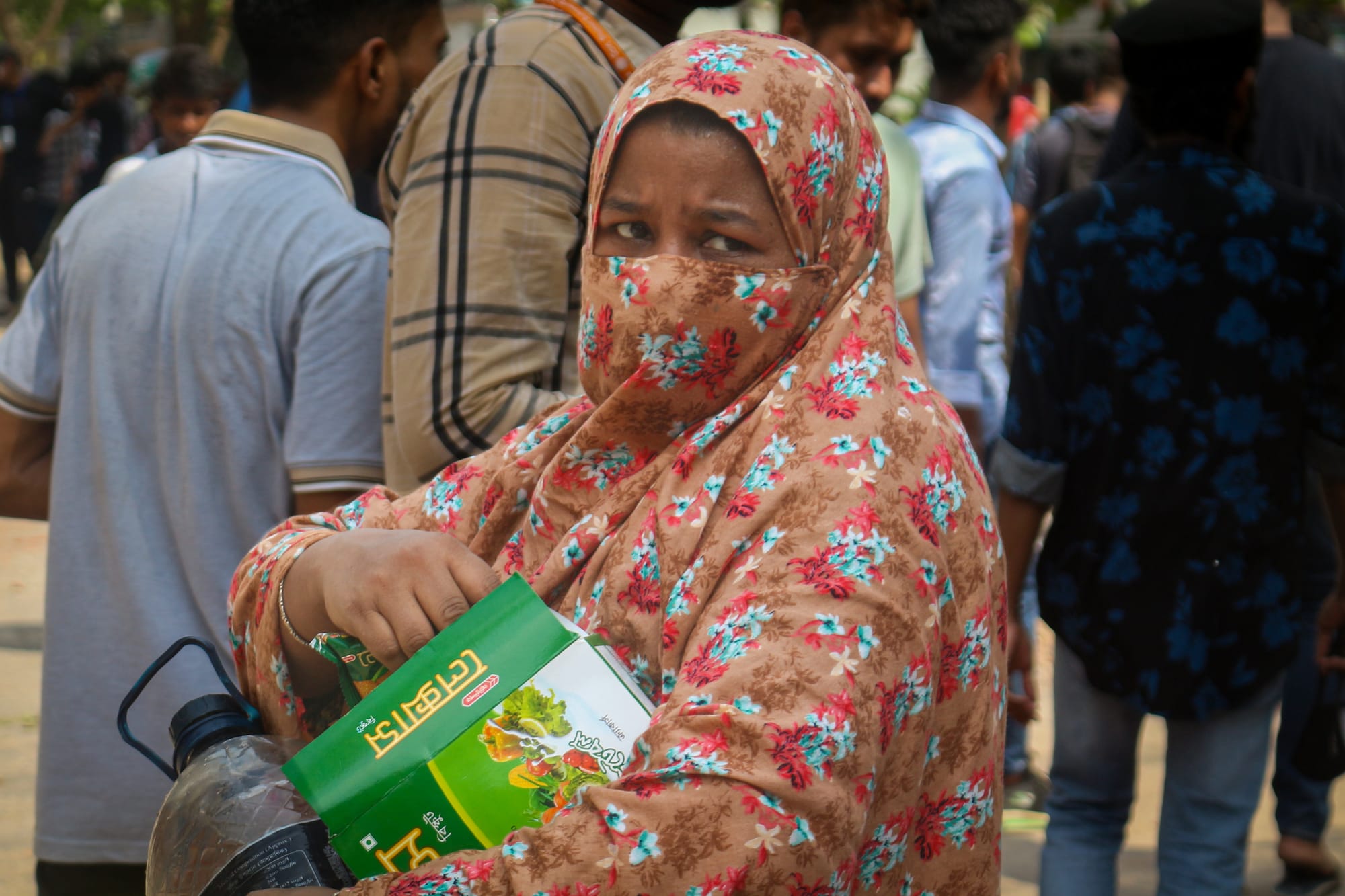
Photographs: Sazid Hossen Chowdhury
We hope this movement isn’t remembered only as a bloody chapter—but as a generation’s awakening. When we stand united, oppressors either flee—or fall. This kind of resistance isn’t new, it has existed before, it exists now and it will continue to exist in the future.

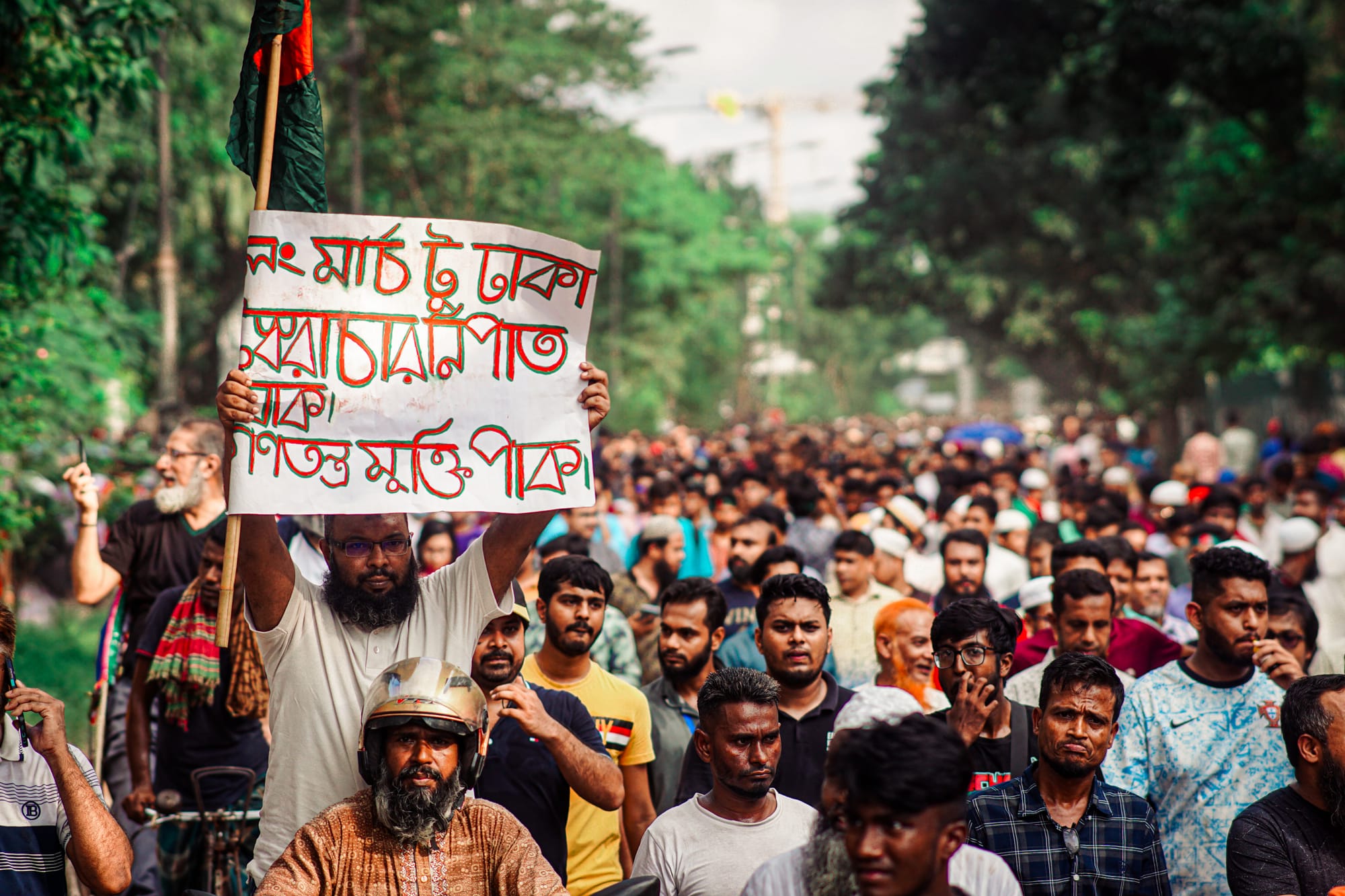
At one point in July, a little schoolgirl walked up to us with her backpack and said, “Bhaiya, I want to stand too.” She didn’t know about quotas or politics. It was then we realized, we weren’t just protesting. We were planting seeds of consciousness for generations to come. Whether we “won” or “lost” didn’t matter, what mattered was that we stood up. Let no one forget this story.
